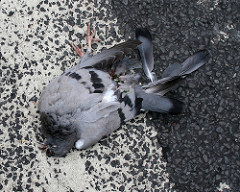The treatment of central sleep apnea depends upon the cause of the problem. If it is a result of another condition, for example, congestive heart failure, then the condition is treated. In this case, the physician would address the congestive heart failure and by doing so, it should take care of the central sleep apnea and the patient should not experience sleep apnea again. If your central sleep apnea is caused by other reasons, then your treatment options can vary.
Continuous Positive Airway Pressure
Continuous positive airway pressure is recommended for the patient who has been diagnosed as having central sleep apnea. This is also the most preferred treatment for those who have been diagnosed with obstructive sleep apnea, as well.
Continuous positive airway pressure (CPAP) forces air into the airway by the use of a mask during the sleeping process. Since the air is forced into the lungs, basically the machine does the breathing for you. So if your body “forgets” to breathe, no worries, you will still breathe because of the machine. The machine also helps to keep the air sacs of lungs full so that they do not collapse. Unfortunately, the central sleep apnea returns whenever you do not use the machine anymore or if you use the machine improperly.
Other treatments
Central sleep disorder can be treated through the reduction of opioids. Opioids can be the cause of the sleep disorder problems, so by eliminating or cutting down on the amount of opioids taken, treatment can occur. (Opioids are medications such as morphine, oxycodone and codeine.) Medications can be used to help in stimulating breathing during the sleep cycle. Certain medications can be prescribed by your physician. For example, acetazolamide can help prevent central sleep disorder while in high altitudes.
Supplemental oxygen (different that the CPAP machines) can be used to help treat central sleep disorder. Different oxygen’s and different devices are available that helps to deliver this treatment. This treatment may not be recommended to those who have heart failure.
Bilevel PAP machines and Adaptive Servo Ventilation (ASV) are two other types of machines that are similar to the CPAP machines. Each machine offers delivery of air in different forms. For example, the bilevel machine increases air flow pressure during the inhaling process and decreases the flow of the air during the exhaling process. They can be set to be triggered in response to your breathing or it can be set to breathe in case you don’t. The ASV machines are a newer model of a machine and it monitors your normal breathing patterns and stores the information into a computer and then after you fall asleep, it uses pressure to regulate your breathing and it prevents any pauses in your breathing process.
The type of treatment that may be recommended by your physician will depend upon your individual central sleep disorder condition. Each patient is different and each patient responds to treatment in a different way. Your physician will tailor your treatment to suit your needs.
Go to Sleep Apnea Zone to get your free ebook on Sleep Apnea at Sleep Apnea. Sleep Apnea Zone also has information on Central Sleep Apnea Treatment along with a lot of other free information. Come by our new Sleep Apnea Community site today for free ebooks and other free information that can help you today.

